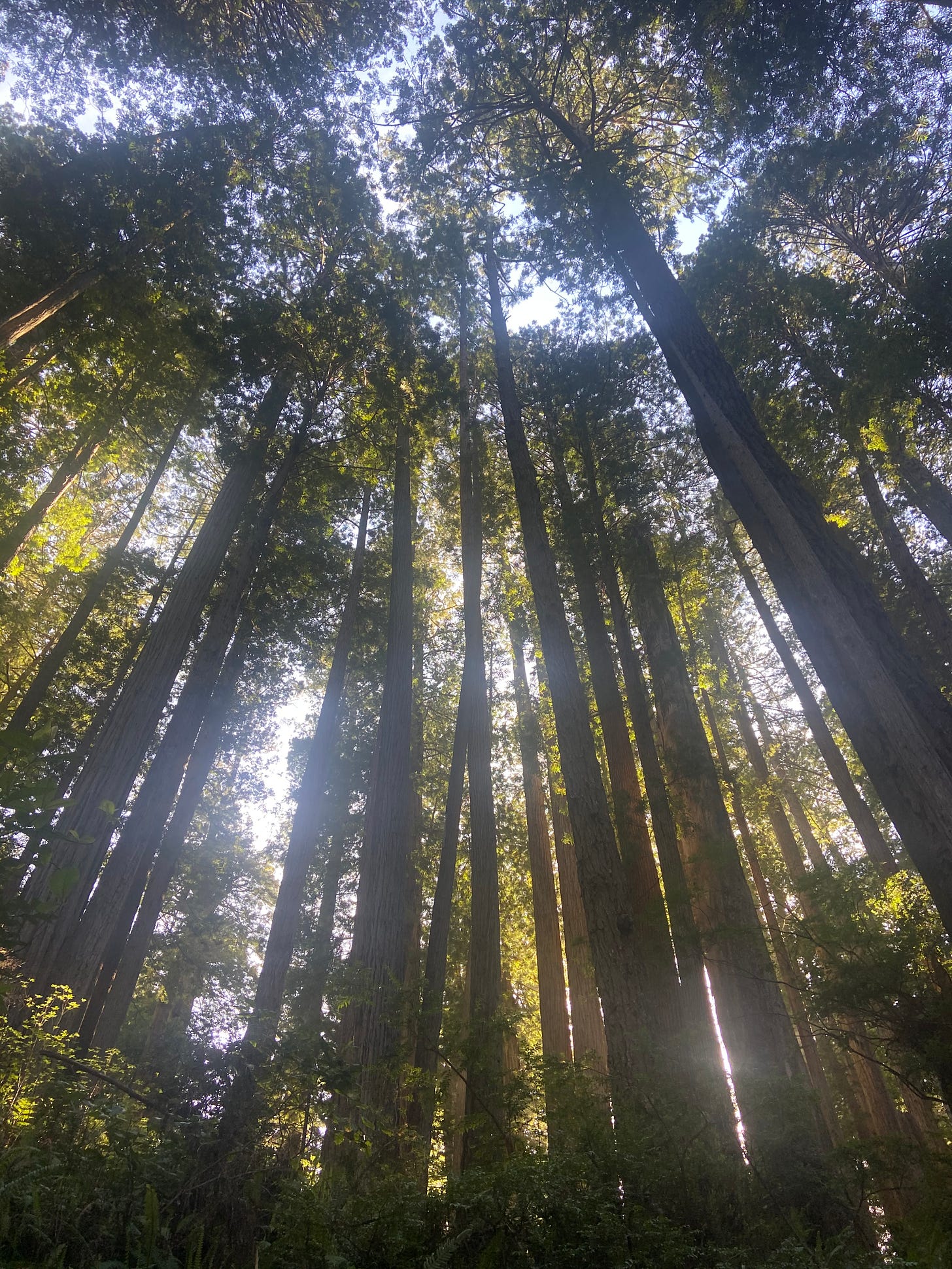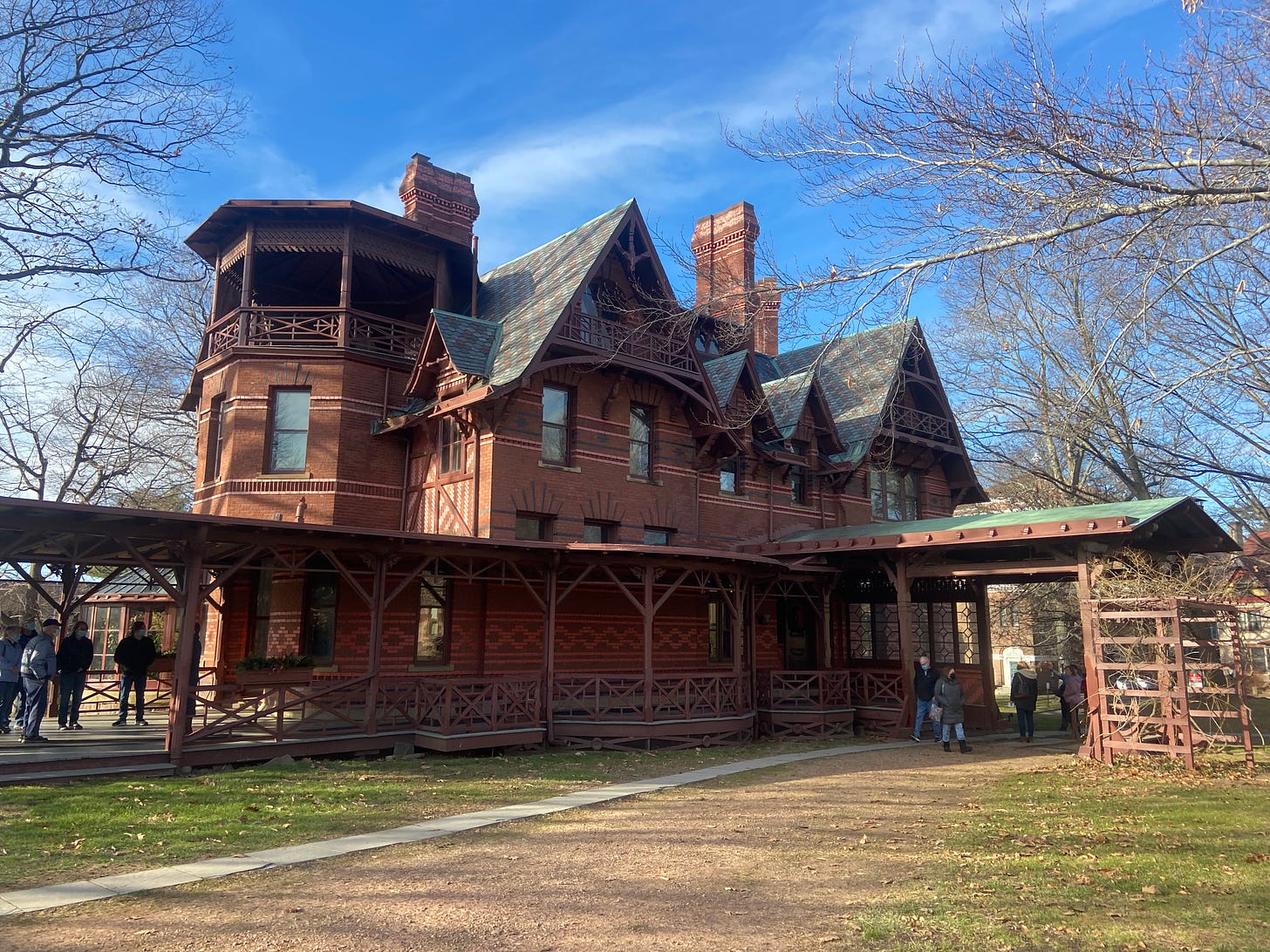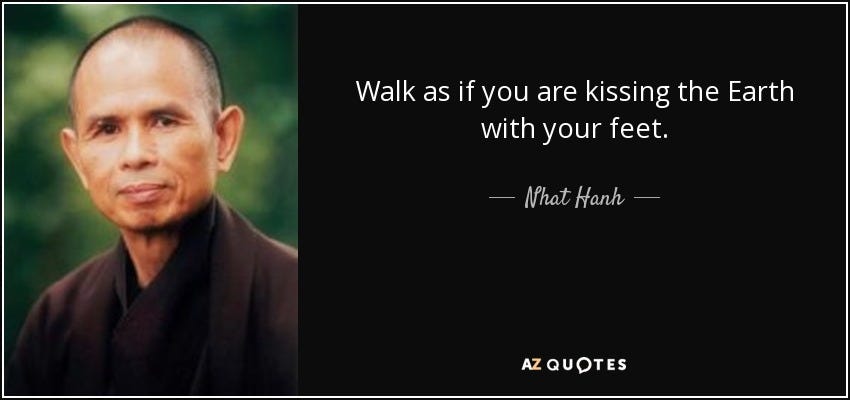Hi friends,
The late Mary Oliver wrote most of her poems while walking. She rejected the assumption that you need to sit down at your computer to write, so she grabbed her notebook and immersed herself in nature. Inspiration followed. Aristotle walked, Steve Jobs walked to do his creative thinking in business and strategy, and Henry David Thoreau walked throughout the day to generate his best ideas. “The moment my legs began to move, my thoughts began to flow,” Thoreau said.
As the days grow colder, darker, and shorter in this neck of the woods, I walk. I walk to clear my mind, understand the world, and absorb the beauty around me. I walk for fresh air for my lungs and sunlight for my skin. I walk because the health benefits are enormous, and stretching my legs is freeing. Whether I’m stuck or joyful, I find great comfort in the simple pleasure of a nice walk, preferably outside in the open air.
I think of Nhat Hanh, who wrote the book, How to Walk, a good reminder of the skill we learn in our earliest years of life — but then we forget entirely. He notes that many times we walk on autopilot, unaware of the precious ability to walk on Earth in the first place. Many of us walk while glued to our phones or while thinking about the next thing on our to-do list. He urges us to reconsider this approach. When walking, let’s walk, mindfully embracing each step. Let’s hear the birds and notice the work of our feet and legs to move us forward through the world.
The health benefits of walking also include:
Improve cardio health, memory, retention
Prevent or manage various conditions, including heart disease, stroke, high blood pressure, cancer and type 2 diabetes
Strengthen your bones and muscles
Lose weight, lower blood pressure and cholesterol

There’s an indigenous tribe living deep in the Amazon rainforest, and the members have had hardly any evidence of heart disease. In fact, researchers concluded after a year-long study that the Tsimane, as they are called, had the healthiest hearts in the world, a position previously held by Japanese women. What gives? You can thank walking. On average, members of the tribe take about 17,000 steps a day. No expensive gym memberships or elaborate workout routines — just consistent activity. And they hardly ever sit. (The tribe also gets plenty of rest, sleeps eight to nine hours per night, and maintains a strong social fabric of laughing, chatting, and sharing.)
I look forward to my daily walks: walking in the morning, walking dogs, walking with a friend for a cup of coffee, and walking alone to get some sunlight while letting the mind wander. At work, most of my ideas come to me not while sitting at the desk but while walking outside. Moving is embedded in us, rooted in our evolution as hunters and gatherers, so it’s no surprise walking has a tendency to foster quality conversation between people.
The benefits tend to linger well after the walk ends, too. Here’s to a daily walk for all of us!
When and where do you walk?
Photos of the week: Ally and I toured the Mark Twain home in Hartford, Connecticut, which sustained a sizable literary and publishing scene in the 19th century. William Faulkner called Twain "the father of American literature.”


Parting thought: “There is good reason why you should wake each morning and mindfully consider what and who you will give your day to. Because unlike other things in life – goals, money, respect, good health, hope, success, and many more – time is the one thing you can never get back once it’s gone. Starting today, make your time count! Love what you do, until you can do what you love. Love where you are, until you can be where you love. Love the people you’re with, until you can be with the people you love most. Put your whole heart and soul into the present! This is the way we find happiness, opportunity, peace, and progress on the average day.” — Angel Chernoff
Parting question: Ask of everything you do, schedule, or get worked up over: Does this really matter?
Celebrate your gifts,
Matthew




